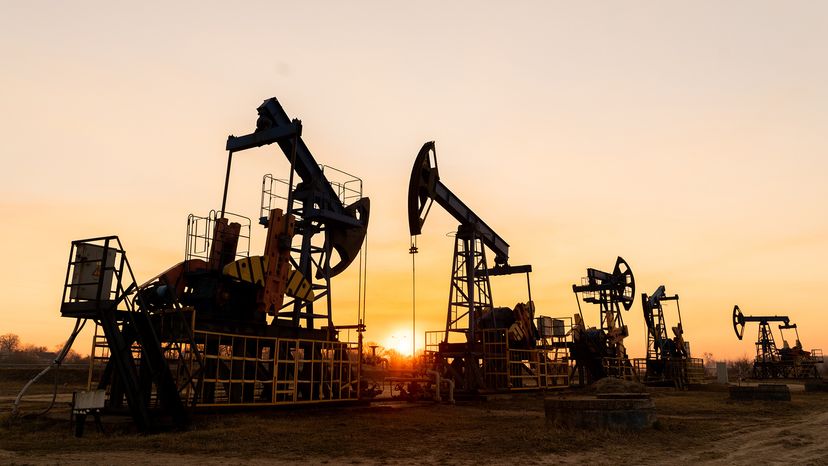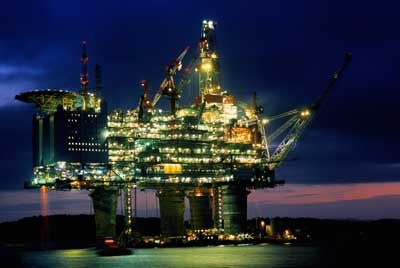Naturally, we can't tap and drain an entire planet's worth of oil from a single well. Countless oil wells pox Earth's surface: some active, some long-drained. Each oil well follows a production bell curve, with output rising, stabilizing and then declining to nothing over a period of years.
This is called the Hubbert Curve, proposed in 1956 by Shell geologist Marion King Hubbert.
Hubbert also extrapolated his curve to global oil production. Oil companies discover the large, easily exploited oil fields first and then move onto smaller, deeper oil fields when the large ones decline.
New technology also continues to make previously unexploited oil deposits viable fossil fuel reserves. The overall curve predicts that global production will rise, peak and then fall off.
Before this gradual downfall begins, however, we'll reach a point known as peak oil. Imagine a carafe filled with coffee. Now imagine pouring cup after cup without effort until the stream of java begins to trickle.
Eventually you even have to severely tilt the carafe in order to drain the dredges. Peak oil is that last full and flowing cup before the final decline begins. Demand continues to grow, while the Earth's nonrenewable oil reserves dwindle.


